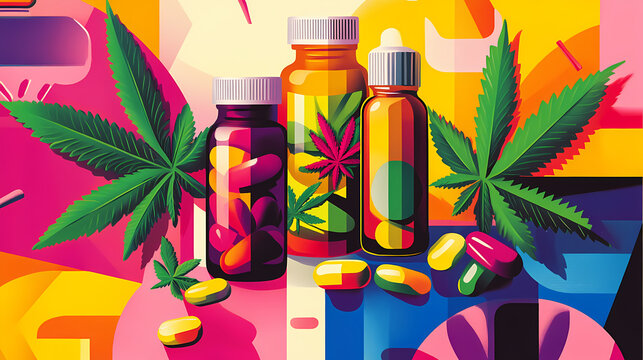Marijuana Legalization Changes Demand for Medications
American researchers have found a link between the legalization of cannabis in the U.S. and changes in demand for sedatives, antipsychotics, and other medications.
Antidepressant Use Rises After Cannabis Legalization
Experts analyzed data from over 10 million insured Americans collected between 2007 and 2020 and discovered several interesting trends:
- The number of prescriptions for benzodiazepines dropped by 12.4% after medical cannabis was legalized, and by 15.2% after recreational cannabis was legalized.
- Prescriptions for antidepressants increased by 8.8% after stores selling cannabinoid-based medicines opened.
- Prescriptions for antipsychotics rose by 2.5% after the ban on medical cannabis was lifted.
Benzodiazepines are used to treat anxiety, epilepsy, and muscle spasms. Cannabis is known to help with these conditions, and the two most popular cannabinoid-based medications, Epidiolex and Sativex, are prescribed to patients with epilepsy and muscle spasticity from multiple sclerosis, respectively. This makes it clear that the drop in benzodiazepine sales is due to Americans choosing cannabis over these medications.
However, marijuana abuse can cause psychosis, which may explain the increase in antipsychotic sales after cannabis legalization, as more people may be overusing cannabis. The reason for the rise in antidepressant prescriptions remains a mystery. According to a study by German scientists, cannabis significantly eases depression symptoms, so legalization should have led to a decrease in antidepressant demand, just as it did with sedatives.
Alcohol Consumption Declines After Marijuana Legalization
Analysts at Bloomberg Intelligence found that cannabis legalization also impacts the alcohol industry. According to a company survey:
- 49% of Americans started using cannabis instead of alcoholic beverages.
- 22% began using marijuana more often than drinking alcohol.
These findings are supported by research from Heinz College professor Jonathan Caulkins, who discovered that in 2022, for the first time in U.S. history, the number of people using cannabis daily surpassed those who drank alcohol daily. Combined with the survey results, this indicates a decline in alcohol sales due to more relaxed drug laws. Bloomberg Intelligence experts believe marijuana legalization poses a serious threat to the alcoholic beverage industry, especially beer and wine producers.



